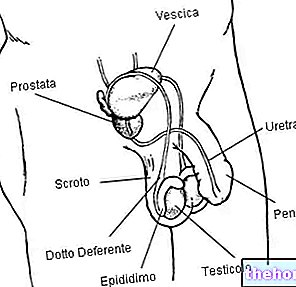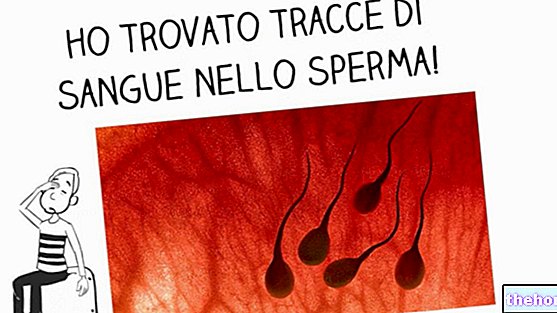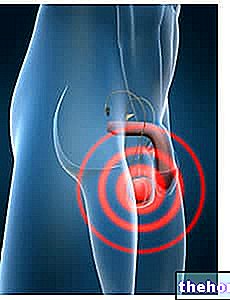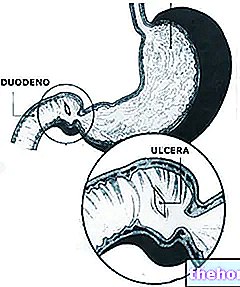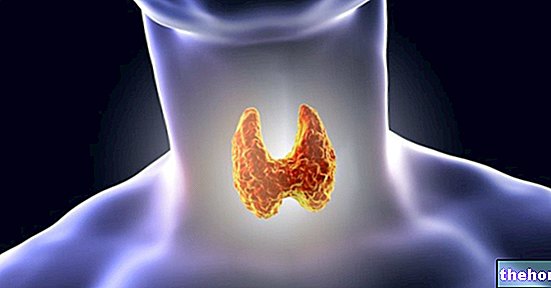Inflammation of the testicle
Orchitis is an acute or chronic inflammatory process that affects one or both testicles and, sometimes, part of the male genital system. Despite what has been stated, the simple isolated inflammation of the testicle is a rather rare phenomenon, being often related to other diseases, such as epididymitis: not surprisingly, more than real orchitis, we often speak of orchiepididymitis.
The term orchite derives from the Greek ορχεις (orcheis) testicle, while the ending, -ite, indicates an inflammatory process: literally, therefore, orchitis means inflammation of the testicle.
Causes

However, more often than not, orchitis arises as a complication of mumps (mumps), a typical viral infection. Any congenital malformations of the urinary tract could also cause testicular inflammation.
Less frequently, orchitis is caused by syphilis, brucellosis or typhus; severe forms of influenza, mononucleosis and hepatitis are also possible, albeit rare, causes responsible for orchitic testicular inflammation.
Orchitis has also been diagnosed in some paraplegic patients suffering from neurogenic dysfunctions of urination (eg neurological bladder): in similar situations, the main cause of testicular inflammation lies in a catheterization that is not entirely precise.
In any case, the etiological research is not always simple and immediate: specifically, when orchitis is caused by bacterial or viral infections, the contagion generally occurs by lymphatic or hematogenous route, through the epididymal canal [taken from Clinical Andrology, by Wolf-Bernhard Schill, Frank H. Comhaire, Timothy B. Hargreave].
Risk factors
In addition to the causes listed above, there are some risk factors that - while not representing the main triggers - could predispose the subject to orchitic complications. These include:
- Patient's age: When the person is over 45, the chances of contracting orchitis increase
- Consuming unprotected sexual intercourse with multiple partners increases the chances of transmission of sexual diseases, and with them the risk of developing a "secondary orchitis
- Patients not vaccinated against mumps are more prone to orchitis
- Compared to adolescents, a male who contracts mumps after puberty is 30% more likely to develop acute orchitis.
- When a subject undergoes various surgeries on the genital system, he is subjected to a greater risk of urinary infections, therefore the chances of orchitis increase.
Classification of orchitis
It is wrong to generalize when it comes to orchitis; rather, it is necessary to carry out a precise classification of its various forms.
According to the type of infection, viral orchitis is distinguished from bacterial orchitis:
- Viral orchitis:
As already discussed, the mumps virus, belonging to the Paramyxovirus group, is one of the major culprits of the inflammation of the testicle.
- Bacterial orchitis:
In general, bacterial orchitis is always associated with epididymitis, therefore with inflammation of the epididymis. In fact, epididymitis, generated in turn by an inflammation of the urinary tract or by venereal diseases, often also affects the testicle , causing an "orcs-epididymitis.
Furthermore, orchitis is distinguished by its course: there are in fact acute and chronic forms:
- Acute orchitis: they are quite rare, and most of the time they follow phenomena of epididymitis [taken from Ecografia, by G. Gavelli, A. Lentini]. However, acute orchitis can also result from brucellosis, typhus or mumps: they are all infections of generalized extension that complicate the patient's clinical profile. When the adult subject is struck by mumps, we have seen that the chances of contracting orchitis also increase: this possibility should not be underestimated, considering that, in such situations, the patient runs the risk of becoming sterile.
- Chronic orchitis: more frequent, it is usually generated by testicular trauma or, more rarely, by syphilis and tuberculosis. The clinical explanation is not demonstrable; however, some authors believe that the chronic form of orchitis can result from reactions of the organism in response to foreign substances contained in the seminal fluid. A typical prodrome of chronic orchitis is the increase in testicular volume, a situation which in any case does not cause pain. in most cases.
Again, on the basis of histology, tuberculous orchitis and granulomatous orchitis are distinguished:
- Tuberculous orchitis: presence of caseous abscesses
- Granulomatous orchitis: it is characterized by the presence of mononuclear cell infiltrate. The granulomatous variant of orchitis consists of a non-specific inflammation of the testicle, usually generated by an autoimmune reaction against the spermatozoa themselves.
Specific type granulomatous orchitis is generally caused by syphilis, typhus or tuberculosis.
Orchitic patients, therefore, must be subjected to careful diagnostic tests, since orchitis, in particular granulomatous, can be mistaken for neoplasia.
Other articles on "Orchite"
- Orchitis: Symptoms and Therapies
- Orchitis - Drugs useful in the treatment of Orchitis
- Orchitis in Brief: Summary on Orchitis




